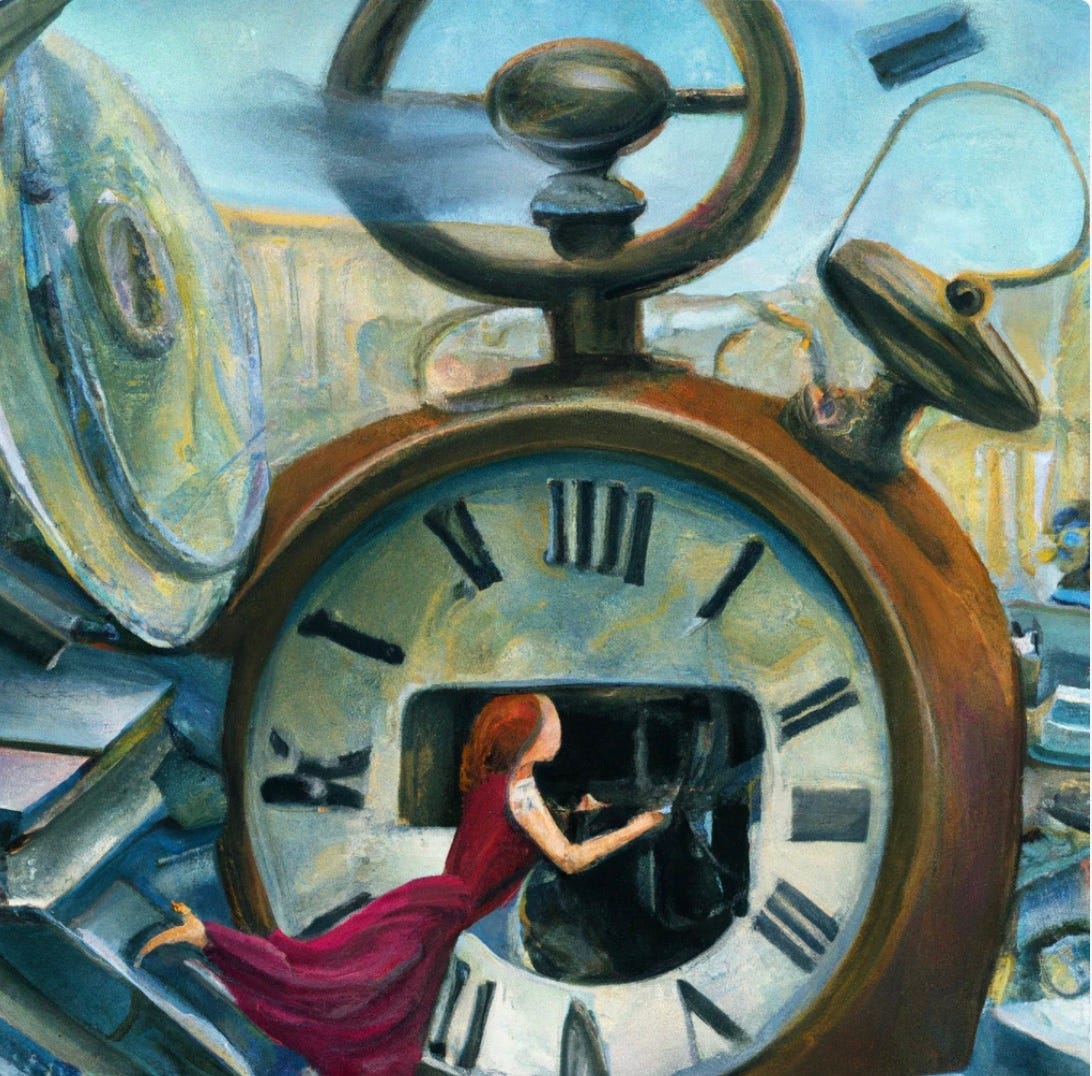What's in an hour? Inspiration from The Vinyl Room
On the creative power of an undistracted hour
One thing I love about teaching is the inspiration I get when my students start writing, creating, and making something beautiful. Such is the case with
by Andres Celati. I first had the pleasure of reading Andres’s work when he was a student in my Writing for Substack class in February (the new session sta…



